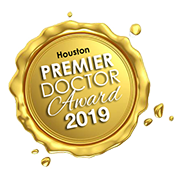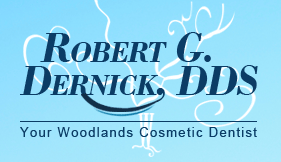What is the link between Sleep Apnea and Dentistry?
Insomnia, snoring, and restless sleeping are symptoms often associated with sleep apnea. Several health issues can be linked to sleep apnea and some conditions can cause people to suffer from sleep apnea. But what is the link between sleep apnea and dentistry? And why would you need to see Dr. Dernick at The Woodlands Dentist for a sleep problem?
What is sleep apnea?
The American Academy of Sleep Medicine estimates that about 25 million Americans are affected by sleep apnea. Those who have sleep apnea experience recurrent interruptions to their breathing while they are sleeping. Obstructive sleep apnea is the most common type and it occurs when the soft tissues in the airway collapse. When the airway becomes blocked, it disrupts sleep patterns, and many snore or wake up gasping for air. Apnea cuts off the supply of oxygen to the lungs.
Disruptions to normal sleep cycles can cause issues such as daytime weakness, reduced mental performance, mood alterations, and fatigue. It can also cause other adverse reactions to one’s health. You may have to battle low oxygen levels, increased blood pressure, and possibly heart-related issues and is a contributing factor in increasing stroke risk.
The Sleep Apnea and Dentistry Connection
Your body needs to get good, quality sleep. It’s beneficial to your entire well-being and overall health. When you are generally healthy, your body can fight off gum disease, mouth ulcers, and even bad breath more efficiently. Some of the oral health issues often associated with sleep apnea include bruxism, mouth breathing, and TMJ disorder.
TMJ and Sleep Apnea
There is a definite connection between TMJ and sleep apnea. The temporomandibular joint acts like a sliding hinge and links the upper and lower jaws on both sides of your mouth. Symptoms of a TMJ disorder may include jaw pain, headaches, pain in the neck or shoulders, or a locked jaw. It can also cause some issues with chewing.
According to a study published in the Journal of Dental Research, people at a higher risk of sleep apnea were about three times more likely to suffer from TMJ. The study also recorded that patients who had sleep apnea were over 70% more likely to suffer from TMJ problems. This was irrespective of their age, weight, race, or whether they smoked.
Bruxism and Sleep Apnea
Dr. Dernick at The Woodlands Dental Group sees a lot of patients who suffer from bruxism. Bruxism is the term used for jaw clenching or teeth grinding. Even though a person may clench their jaw or grind their teeth at any time, it most commonly occurs at night subconsciously. It is estimated that about 30% of adults who suffer from bruxism also suffer from sleep apnea. Since bruxism is involuntary, it is classified as a sleep disorder. Dr. Dernick can detect the signs of teeth clenching during a routine dental exam.
Mouth Breathing and Sleep Apnea
A person who suffers from sleep apnea is often forced to breathe through their mouth. This can cause dry mouth which contributes to the development of gum disease, mouth sores, plaque, and tooth decay. Experts estimate that about 62% of sleep apnea patients also have periodontal disease.
Contact The Woodlands Dentist
Sleep apnea and dentistry are linked in many ways and one may affect the other. If you are concerned about sleep apnea, call The Woodlands Dental Group today to schedule a dental exam with Dr. Dernick. He can help determine the cause of your sleep problems and offer a variety of treatment options to help you sleep better and protect your oral health.




